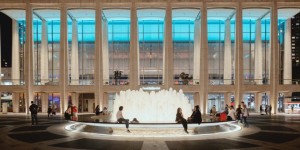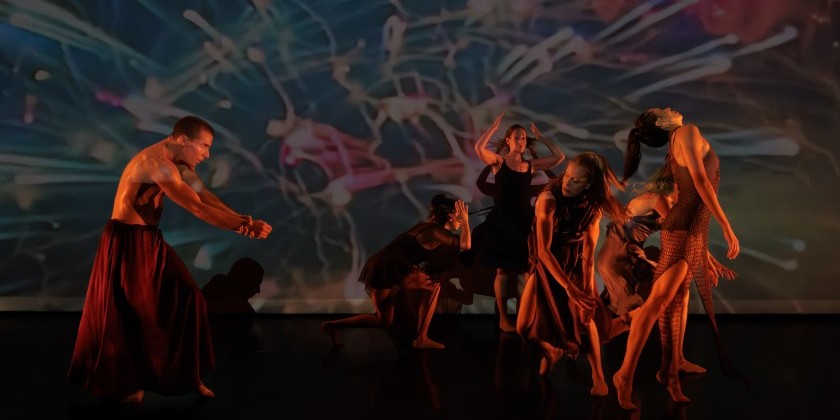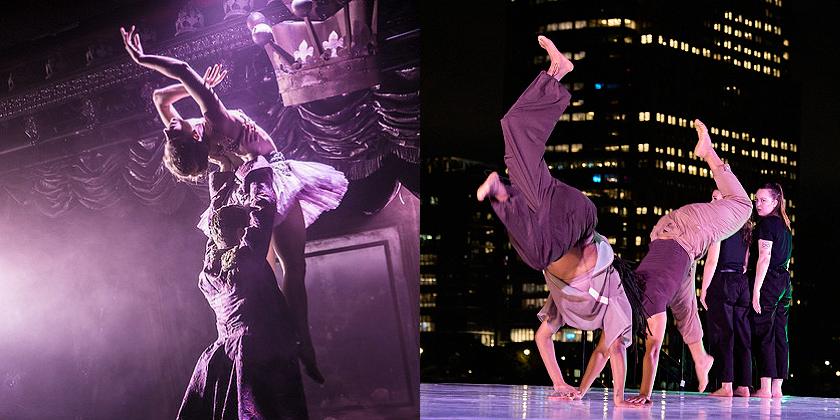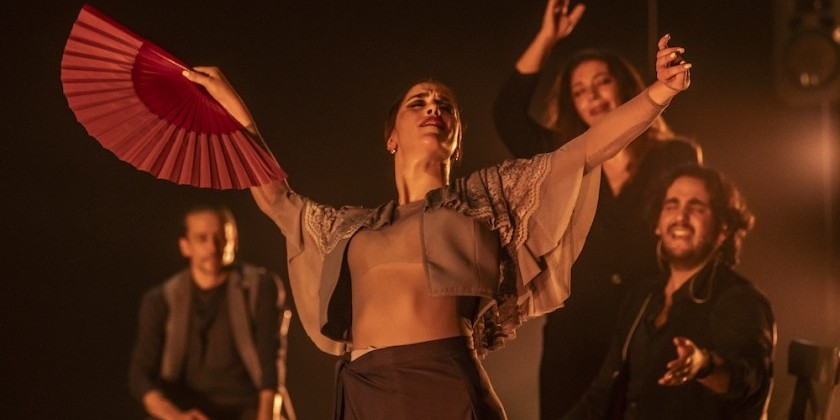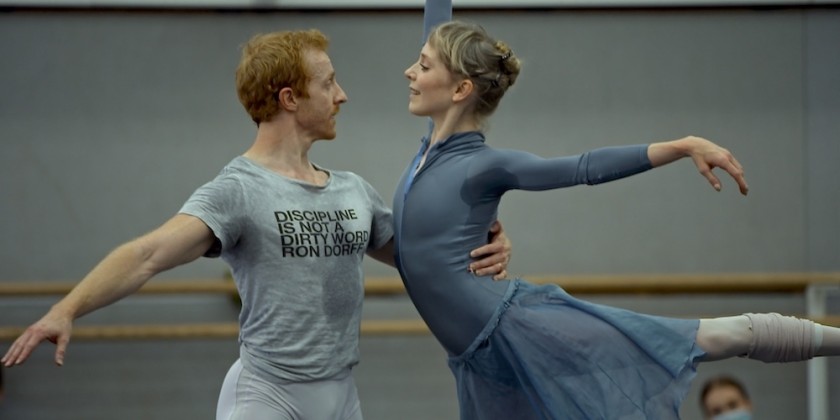IMPRESSIONS: Megan Williams and Eve Beglarian's "Smile though your heart is aching" at Mark Morris Dance Center
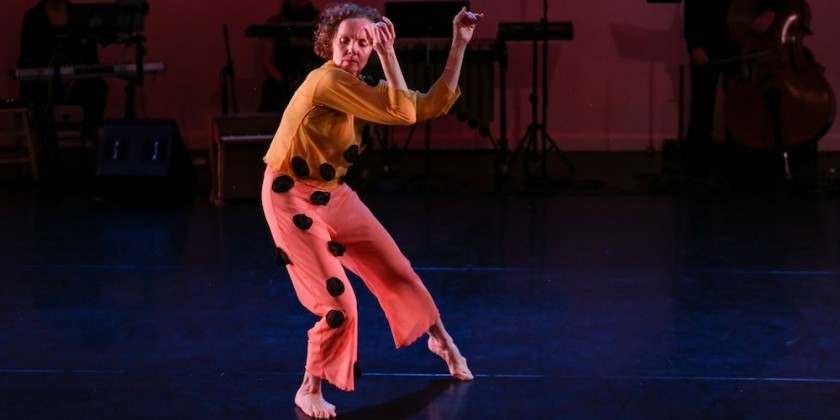
Choreographer: Megan Williams
Composer: Eve Beglarian
Venue: Mark Morris Dance Center
Date: April 6, 2024
Musicians: Eve Beglarian, Tristan Kasten-Krause (bass), Margaret Lancaster (flute), Isabelle O’Connell (piano), Caitlin Cawley (percussion), and leiken (vocalist)
Dancers: Esmé Julien Boyce, Robert Mark Burke, Réka Echerer, Mary Lyn Graves, Chelsea Enjer Hecht, Justin Lynch, Mykel Marai Nairne, Will Nolan, Michael Bryan Wang, and Williams
Costume Designer: Claire Fleury
“But, soft! What light through yonder window breaks!” That line from “Romeo & Juliet” published in 1597 conjures a mindset, music, and postures through the countless Shakespearean productions you have probably seen. Yet how many productions do you know that honor the poetry and music of the French popular composer Guillaume de Machaut (1300-1377)? According to American composer Eve Beglarian, Charlie Chaplin was inspired by Machaut’s lyrics "Liement me deport" to write his song Smile for his 1936 film Modern Times. But of course, Chaplin was exceptional.
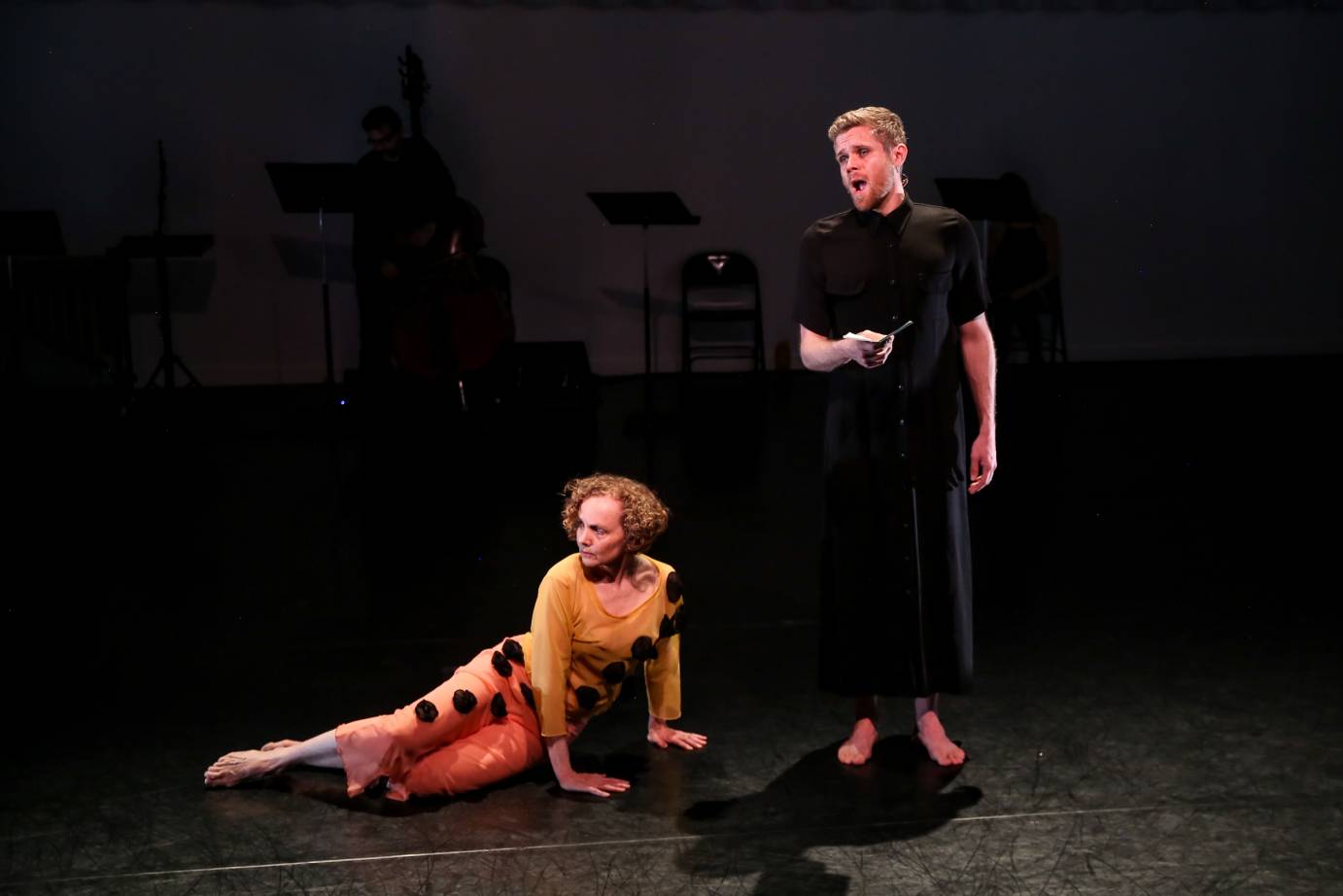
Smile, though your heart is aching, a collaboration between Beglarian and dancer/choreographer Megan Williams, has a lightness of being. Their spirit of venturing onto paths rarely taken is contagious. The barefoot company entered on a diagonal on the right side of the James and Martha Duffy Performance Space at Mark Morris Dance Space. They paused in the silence, and then, the black-clad musicians separated from the pastel-hued dancers to pick up their instruments stretched along the back wall upstage. This entrance set the deliberate, thoughtful tone of Williams’ evening length work set to Beglarian’s anthology, Machaut in the Machine Age. Filled with gentle trios, duets, solos, and ensemble pieces, this pioneering work made me wonder about how emotional awareness, our use of time, space, energy, differ from era to era.
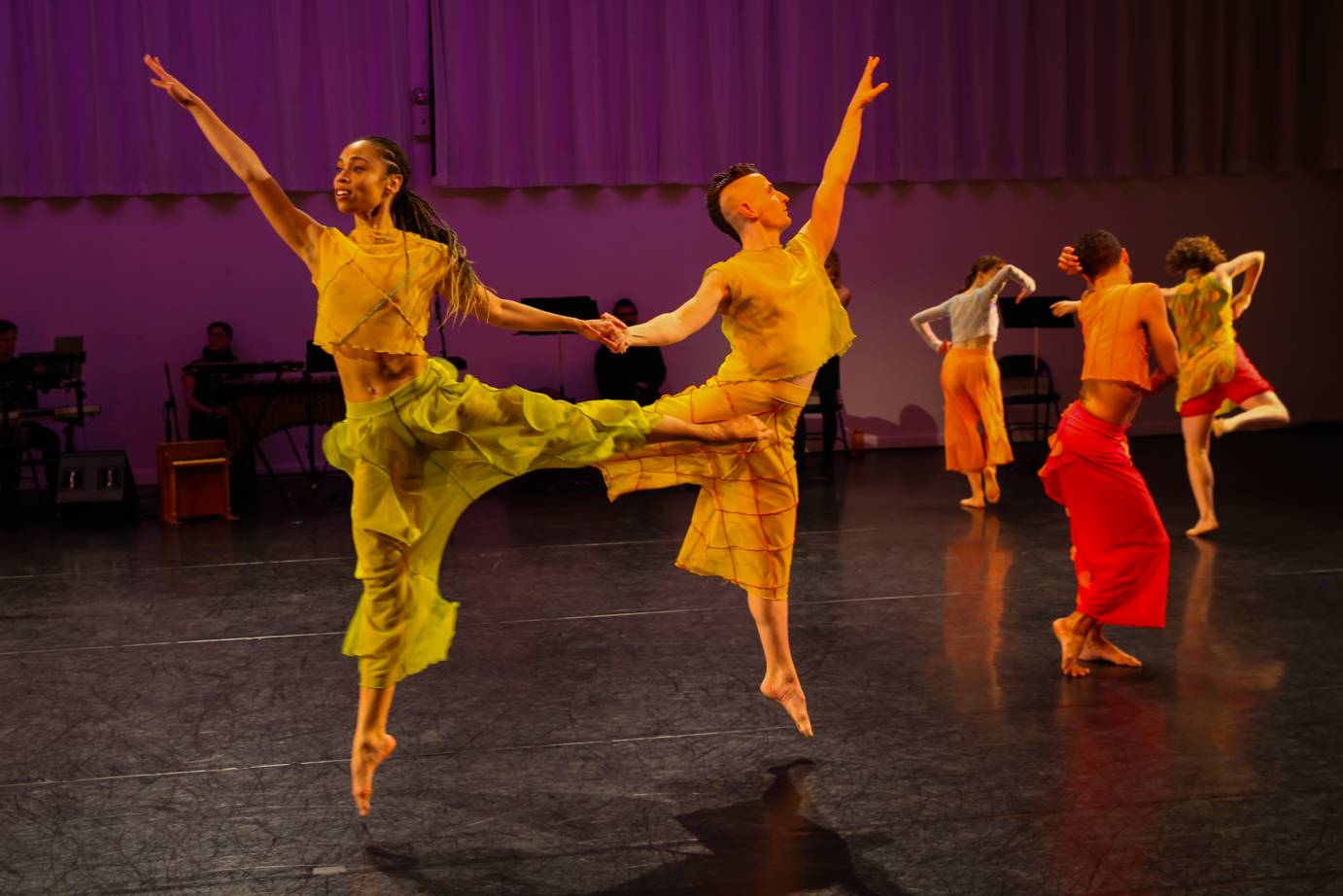
Whenever Leiken (Lukas Papenfusscline) sang, the dancers seemed to blur; his voice is so profound that your eyes flutter shut. Margaret Lancaster’s presence on flute was equally compelling. Sometimes mysterious, sometimes droll, Beglarian’s music gives Williams ample inspiration to explore a corporeal sensibility with a distinct softness to it.
Williams introduced her vocabulary and style in a delicate solo after the initial flourish of the ensemble. One motif involves three classic arm gestures commonly used with a balletic warmup, punctuated with a downward, diagonal thrust of one arm. A sword came to mind. Her pace is relaxed, her stance is contemplative. The dancers throughout the work seem pre-occupied by unresolvable questions or fears perhaps, floating effortlessly with occasional mimic gestures (a soft hand cupped to the ear, a hand flopped open near the forehead). Balletic allegro steps, jumps, and arabesques provide sparks within this impressionistic, fluid dance in which the dancers sometimes skitter across the floor like birds, or roll by themselves, on the floor in pretzeled configurations.
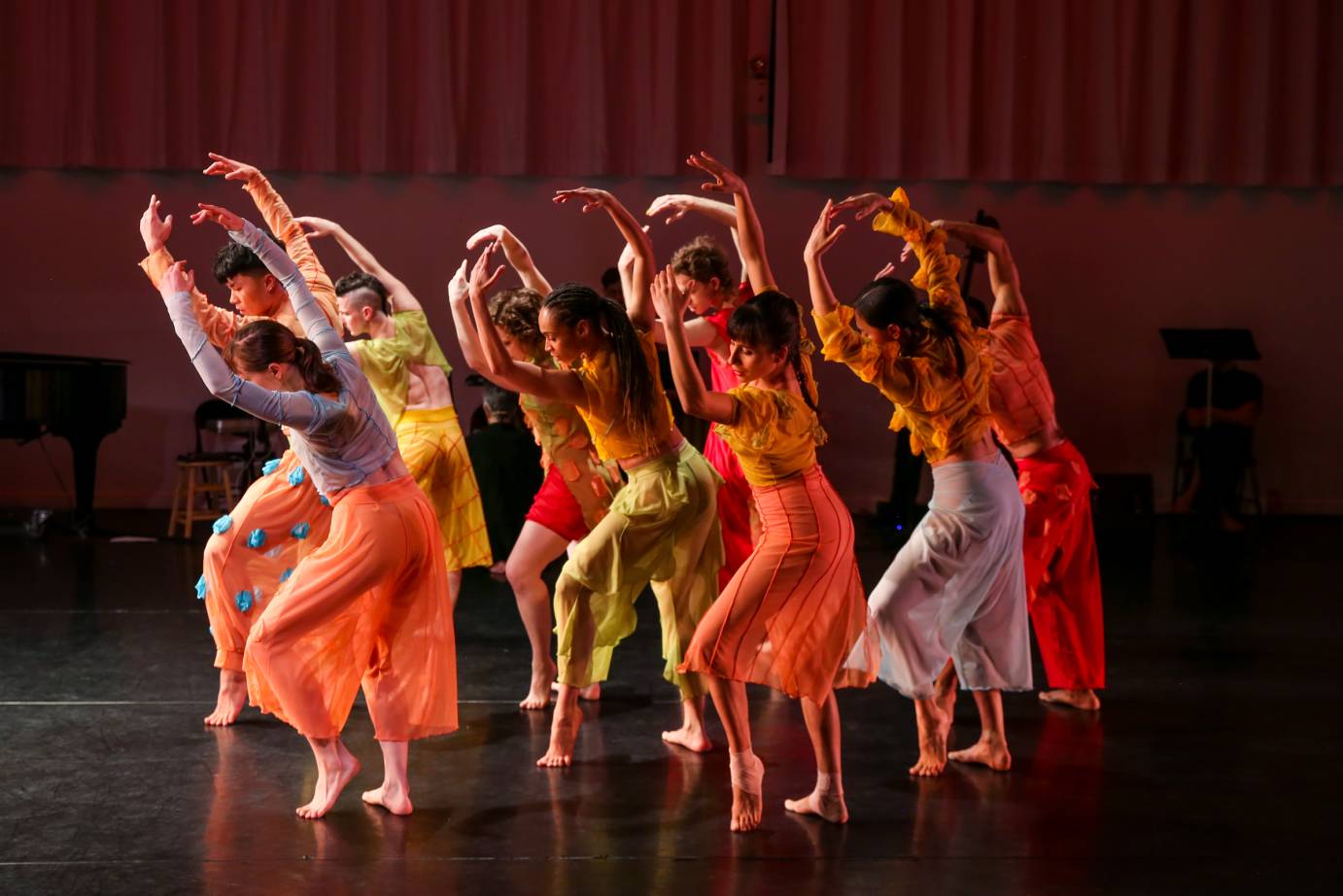
Will Noling, Réka Echerer, Chelsea Enjer Hecht, and Justin Lynch. Photo: Julie Lemberger
Beglarian’s obvious love of Machaut’s poetry reveals itself in her witty translations of the old French. "Be Like Water” (a bow to martial artist Bruce Lee), “Can I have it without begging?" being another selection. Williams dodges the temptation to wisecrack and stays true to an internal state of refined confinement. The artists, who met in a Los Angeles high school, perform a memorable duet in which Beglarian sings forcibly center stage, while Williams makes a fast, wide circle around her, moving her arms to her back and front. They finish side by side, Beglarian in a wide-eyed grin and Williams with a grimace, reminiscent of the Greek comedy/tragedy masks.
Near the close of this piece, one female soloist flashed an ecstatic smile, rippling an energy through the dancers who then began to exchange friendly glances. The dancers join hands, making one wonder whether Williams is making a reference to the Carole, a medieval dance during which dancers join hands around a tree or other object.






